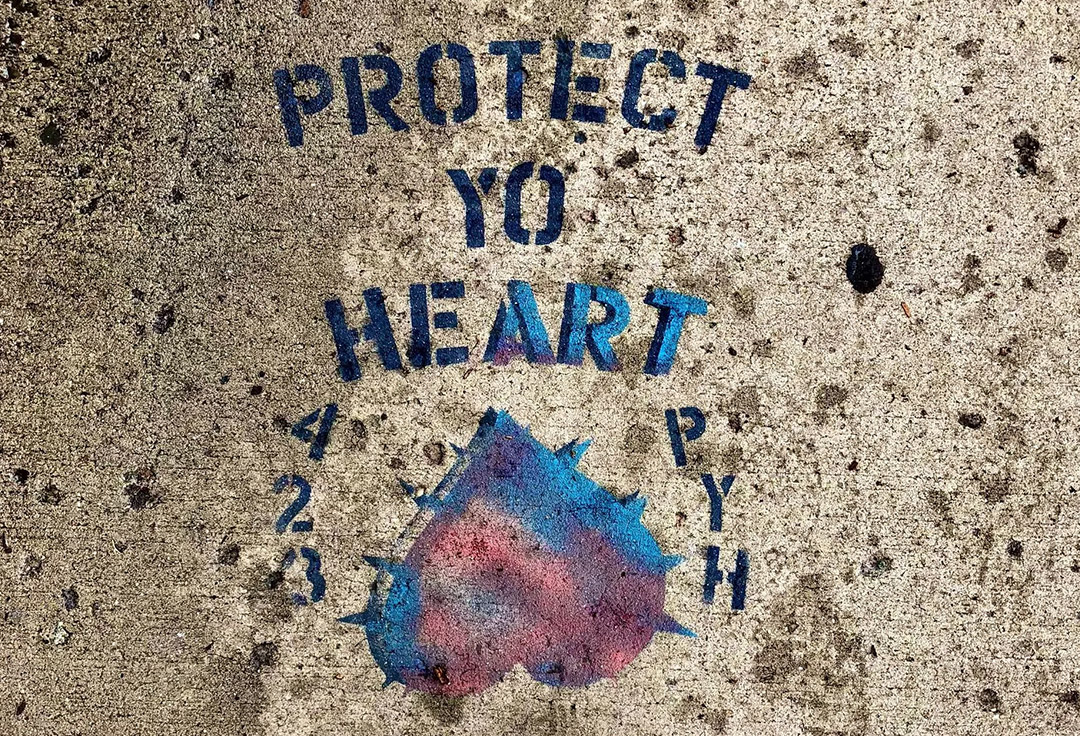A Common Sense Guide to Heart Health
This is the second installment (in-a-row) of articles NOT aimed at money, retirement planning, or the stock market. As I mentioned last month, I set up a doctor’s appointment to figure out why my ear wouldn’t quit itching, and much to my dismay, my physician decided (probably after LOOKING at me) that it was time to get some blood work.
Needless to say, the results weren’t good. It was crystal clear… black and white – I wasn’t invincible anymore. I couldn’t keep eating and drinking like I do, avoiding the gym and using work as the excuse, essentially putting myself (and my health) last on the priority list.
I know I’m not alone. Granted, I have several clients and friends who do an immaculate job at taking great care of themselves. I’m not sure where I lost that obsession (with my health), but I know “when.” As soon as I was done competing in Taekwondo at Ohio State and started my career, all my “obsessing” transitioned from competition to my career.
But still… I’m not alone. There are no shortage of people out there who are “too busy” and don’t make their health – and specifically their heart health – a top priority.
It’s been said that an individual who has their health has a thousand dreams, while an individual with no health has but one. Don’t you owe it to ourselves, our families, and our careers – to have not only a thousand dreams, but also the energy and engagement to make them a reality?!
Few would argue that, to live our best lives, we need to be healthy enough to be fully engaged with our jobs, our loved ones and the world around us. And yet, how many of us regularly forsake lifestyle choices that could help us achieve great things? We may be proactive in other parts of our lives (I know I am!), but we wait until there is a problem to pay attention to our own health.
I recently read some newer statistics, and coronary heart disease (i.e., hardening of the arteries) kills nearly 400,000 people annually. Believe it or not, a heart attack occurs roughly every 40 seconds, and every year, about 785,000 Americans suffer their first heart attack (never mind their second!).
The good news is that it’s easy to take the right steps to achieve a level of health that will help you be effective in your work and in your life. Joel Kahn, clinical professor of cardiology at Wayne State University School of Medicine and the author of Dead Execs Don’t Get Bonuses: The Ultimate Guide to Surviving Your Career with a Healthy Heart highlights six things you can do right away to help stave off heart disease, diabetes, dementia and other major health issues that can knock you down… or out.
Five unexpected signs you may have heart disease
In his book, Dead Execs Don’t Get Bonuses, Kahn points out five “silent” signs that could potentially indicate you have heart disease. None of these signs by itself means you absolutely have artery problems, by the way… but they’re predictive enough that you should get yourself checked out if you have one or more:
Erectile dysfunction in men,
Cramping in the thighs or calves during or immediately after physical exertion,
A diagonal deep crease in the earlobe,
Worrisome sleep habits, such as excessive snoring, sleep apnea, etc., and/or
Baldness, especially on the top of the head.
Six Steps to a Healthier Heart
Step #1: Don’t smoke
An obvious one, of course, but crucial. If you currently smoke, tackle it just as you would any important goal – with a thoughtful plan that includes specific steps, deadlines, and the desire to succeed. Do whatever works for you. For example, Kahn has had patients who weaned themselves by putting ten cigarettes in a lunch bag for a week, then nine, then eight, and so on. Patches, gum, acupuncture, and hypnosis are all good options.
Step #2: Move around
Sitting is the new smoking, says Kahn. “Twenty-two chronic diseases, including heart disease, cancer, dementia, diabetes, arthritis, and obesity, have been linked to how many hours a day you sit,” he notes.
This is another problem that has obvious solutions most of us simply don’t implement:
Stand up when taking phone calls,
Work at a standing desk,
Organize physical activities to do at lunch,
Set a timer at your desk to stand up every 30 minutes,
Walk for 30 to 40 minutes per day,
Step #3: Revamp your diet
Multiple studies show that the simple habit of eating more than five servings of fruits and vegetables a day (especially so-called superfoods like broccoli, kale, bok choy and cauliflower) reduces cancer, diabetes, and heart disease risk.
Not a veggie fan? Kahn has an argument that will show you the light: Vegetables taste a whole lot better than chemotherapy or surgery! “Whether as part of a Paleo diet, a Mediterranean diet, or a vegetarian or vegan diet, fruits and vegetables should make up 50 percent of your plate,” he says.
Step #4: Watch that waist
Doctors used to think fat was just a yellow, globby inert material. Now, says Kahn, they understand it makes hormones. In particular, the fat around the abdomen called visceral abdominal tissue actually makes about 35 hormones… 34 of which are bad for your health and promote chronic disease.
Staying trim doesn’t mean you have to look good in skinny jeans: A waist size under 40 inches for a man and under 35 for a woman is just fine, says Kahn. “Being what’s called pear shaped, or thin in the waist and bigger on the bottom, is actually healthier for you long term than the so-called apple belly body form,” he says.
Step #5: Raise your glass (well…a little bit)
Multiple studies show that a few alcoholic drinks per week may reduce your risk of a heart attack. This is a sensitive issue, of course, as not everyone can (or should) drink alcohol. If you can, however, one to two alcoholic drinks per day can promote heart health. What’s more, the benefits seem to occur whether you’re drinking liquor, wine, or beer.
Step #6: Get your Z’s
Overall, people who average four or five hours a night will not be as healthy in the long run as people who sleep longer. I currently get around 5 ½ hours per night is all… and I know I need to change that, because the studies say that 7 ½ hours appears to be optimal amount to repair your body and prime it for the next day. As with exercise, too much sleep might not be a good thing. Studies suggest that nine or ten hours of sleep per night might actually create some health problems, believe it or not.
We focus on our clients’ “financial health and well-being” at our office, and while we can’t be your first resource for advice on keeping you alive longer, what we can do is help you prepare your financial affairs at times like these.
So, if you’d like to consider a potential 2nd opinion on your retirement plan, estate plan, and investment portfolio, CLICK HERE to take the first steps to answer a few questions and get an intro call set up on our calendar.
‘till next time!
Adam

